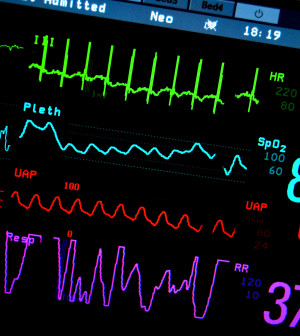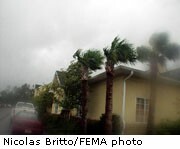- The Best Time of Day to Drink Bone Broth to Maximize Health Benefits
- 8 Ways to Increase Dopamine Naturally
- 7 Best Breads for Maintaining Stable Blood Sugar
- Gelatin vs. Collagen: Which is Best for Skin, Nails, and Joints?
- The Long-Term Effects of Daily Turmeric Supplements on Liver Health
- Could Your Grocery Store Meat Be Causing Recurring UTIs?
- Are You Making This Expensive Thermostat Error This Winter?
- Recognizing the Signs of Hypothyroidism
- 10 Strategies to Overcome Insomnia
- Could Artificial Sweeteners Be Aging the Brain Faster?
Post-Katrina Heart Woes Persisted at Least 6 Years


Six years after Hurricane Katrina wreaked havoc on the U.S. Gulf Cost, a New Orleans hospital was still seeing more than the usual number of heart attack patients.
The findings suggest that the stress caused by major disasters can linger long after more obvious signs of damage have healed or been cleared away, according to new research.
“Prior to Hurricane Katrina, about 0.7 percent of the patients we were treating in our medical center were suffering from [heart attacks],” said Dr. Matthew Peters, internal medicine resident at Tulane University School of Medicine and lead author of the study. “This increased to about 2 percent in the first three years after Katrina and continued to increase to almost 3 percent in years four through six after the storm.”
Overall, Tulane Medical Center had 1,177 heart attack cases in the six years after the 2005 storm. These patients represented 2.4 percent of all admissions.
The researchers suggest that chronic stress and higher unemployment could help explain the disturbing trend. An increase in risk factors for heart disease, such as smoking, drug or alcohol abuse, mental illness and not taking medication as prescribed, could play a role as well.
“We found more patients without insurance, who were unemployed and more who had a previous history of coronary artery disease, showing us that the milieu of patients was a sicker population,” noted senior author Dr. Anand Irimpen, an associate professor of medicine for the Tulane Heart and Vascular Institute, in the news release.
The study, published March 20 in Mayo Clinic Proceedings, also showed the timing of heart attacks changed after Katrina hit. Many more heart attacks occurred during the night or on the weekend, the researchers revealed. They noted that hospitals usually see fewer admissions for heart attacks at these times.
More information
The American Psychological Association provides more information on stress after a hurricane.
Source: HealthDay
Copyright © 2026 HealthDay. All rights reserved.










